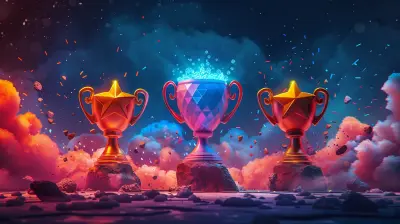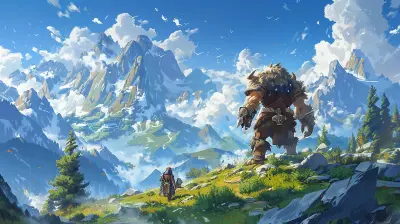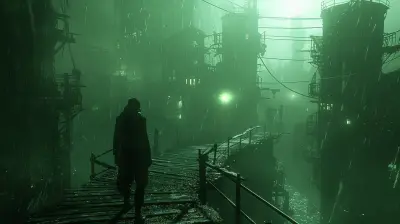Why Open Worlds Capture Our Imagination
10 October 2025
Let’s be honest—there’s something magical about open-world games. Whether it’s scaling mountains in Skyrim, cruising the streets of Los Santos in GTA V, or galloping through Hyrule in Breath of the Wild, the feeling is the same: freedom, adventure, and endless possibilities.
But have you ever stopped to wonder why open-world games have such a strong grip on our minds and hearts? Why do we keep coming back to them, pouring in dozens—okay, let’s be real, hundreds—of hours?
Let’s dive in and figure out why open worlds capture our imagination in such unforgettable ways.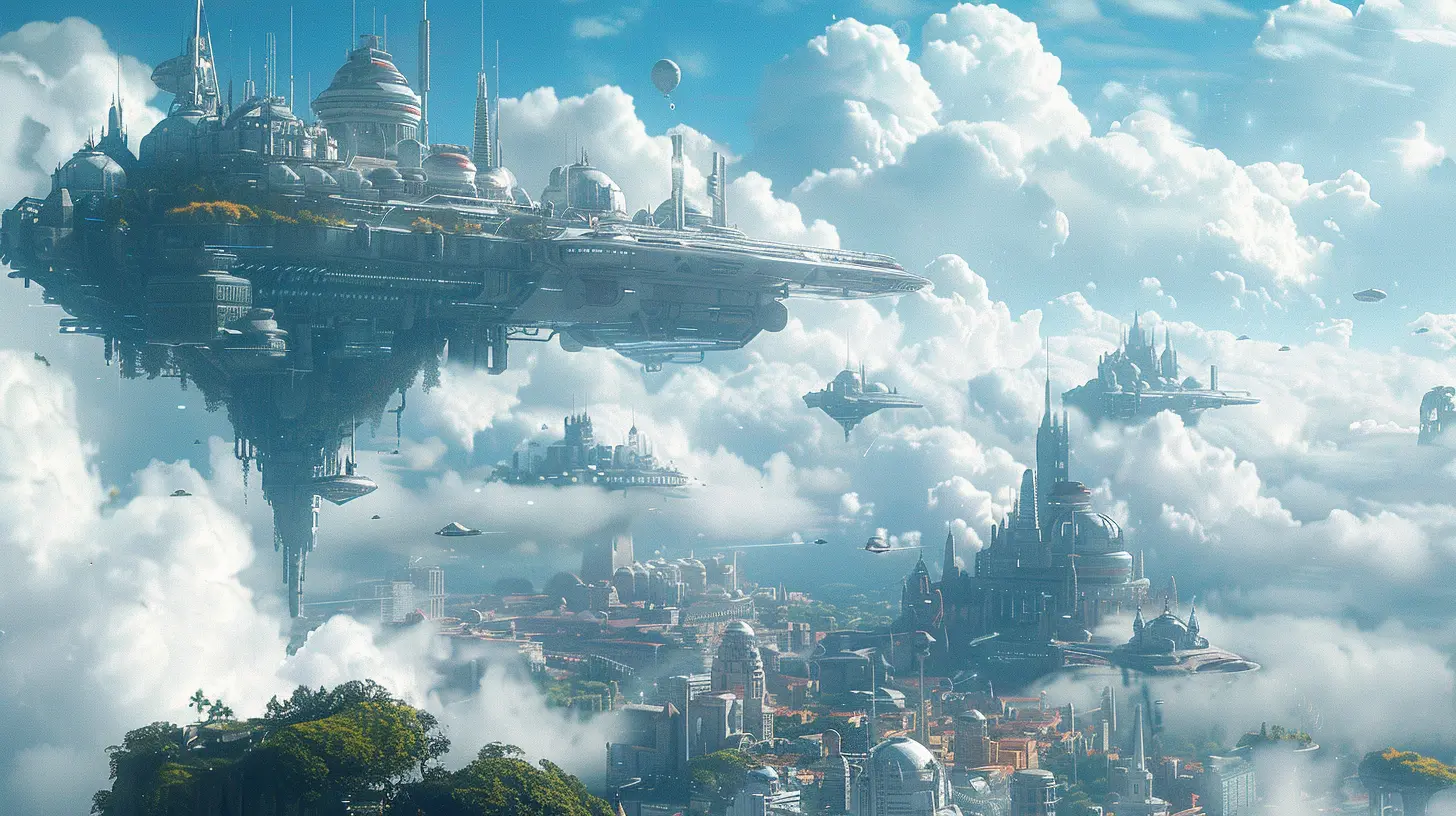
The Thrill of Freedom
Imagine this: You boot up a game, and instead of being told what to do and where to go, the world is yours to explore.No hand-holding.
No locked doors (well, most of the time).
Just you, your curiosity, and a massive sandbox.
Open-world games are basically the dream playground we all wanted as kids—but on steroids. You can climb that mountain because it’s there. You can ignore the main quest for 20 hours just to go fishing. And hey, if you want to test how many NPCs you can pile into a wagon before it breaks the game? Go for it.
The freedom to choose how you play is empowering. It lets us write our own story inside someone else’s masterpiece.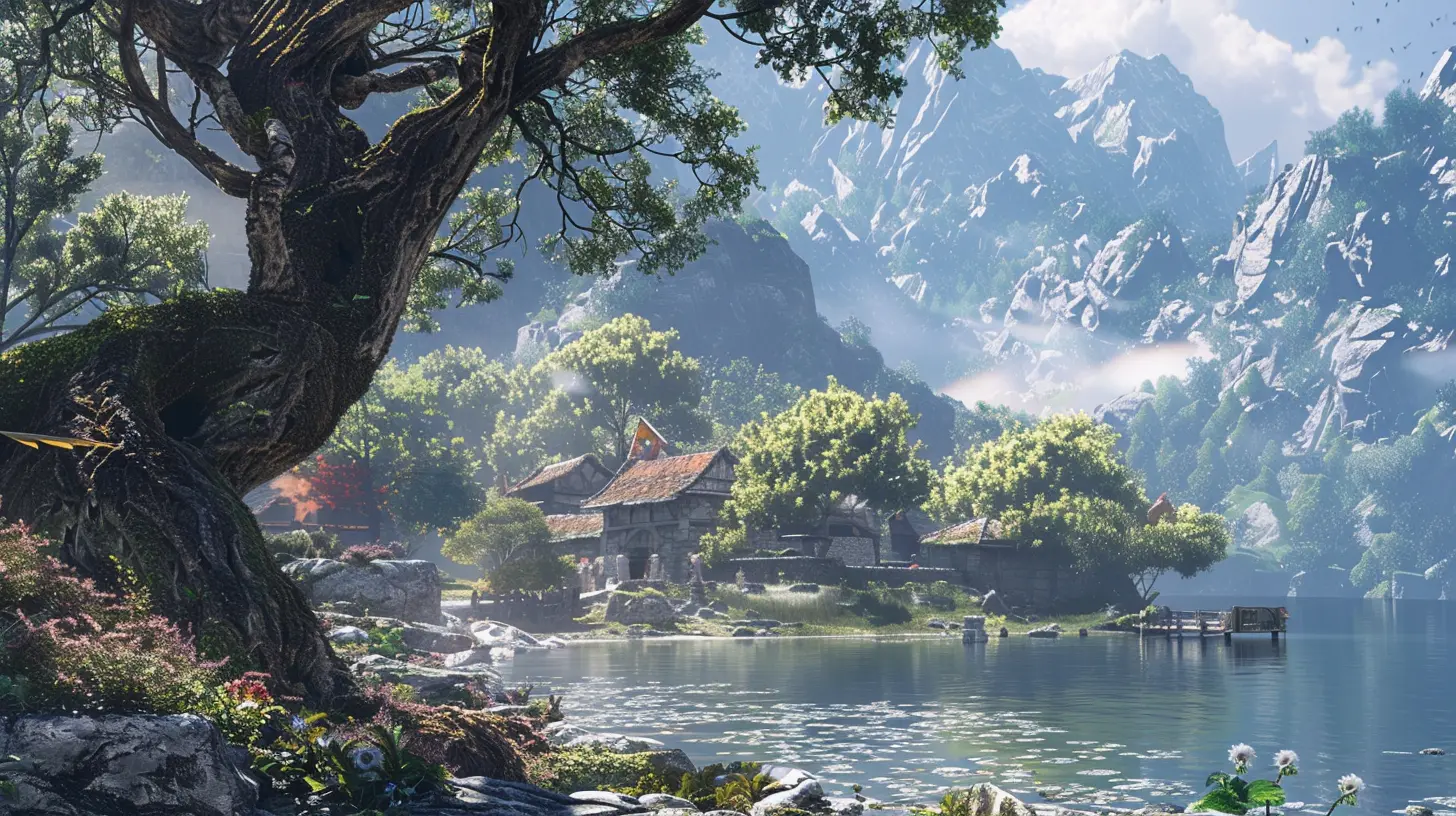
Immersive Worlds That Feel ALIVE
One of the most powerful tricks open-world games pull off? They make us feel like we’re part of a living, breathing world.From bustling cities full of NPCs with their own routines to the way the weather changes and wildlife reacts, every element adds a layer of realism. You might just be sitting in your room with a controller in hand, but your brain is off chasing legends in a digital universe that feels as real as your own backyard.
Games like Red Dead Redemption 2, with its insanely detailed environments and unpredictable NPCs, raise the bar. And don’t even get us started on The Witcher 3—does anything beat chasing monsters through dense forests while listening to bards sing about your adventures?
It's like stepping into a parallel universe where your actions actually shape the world.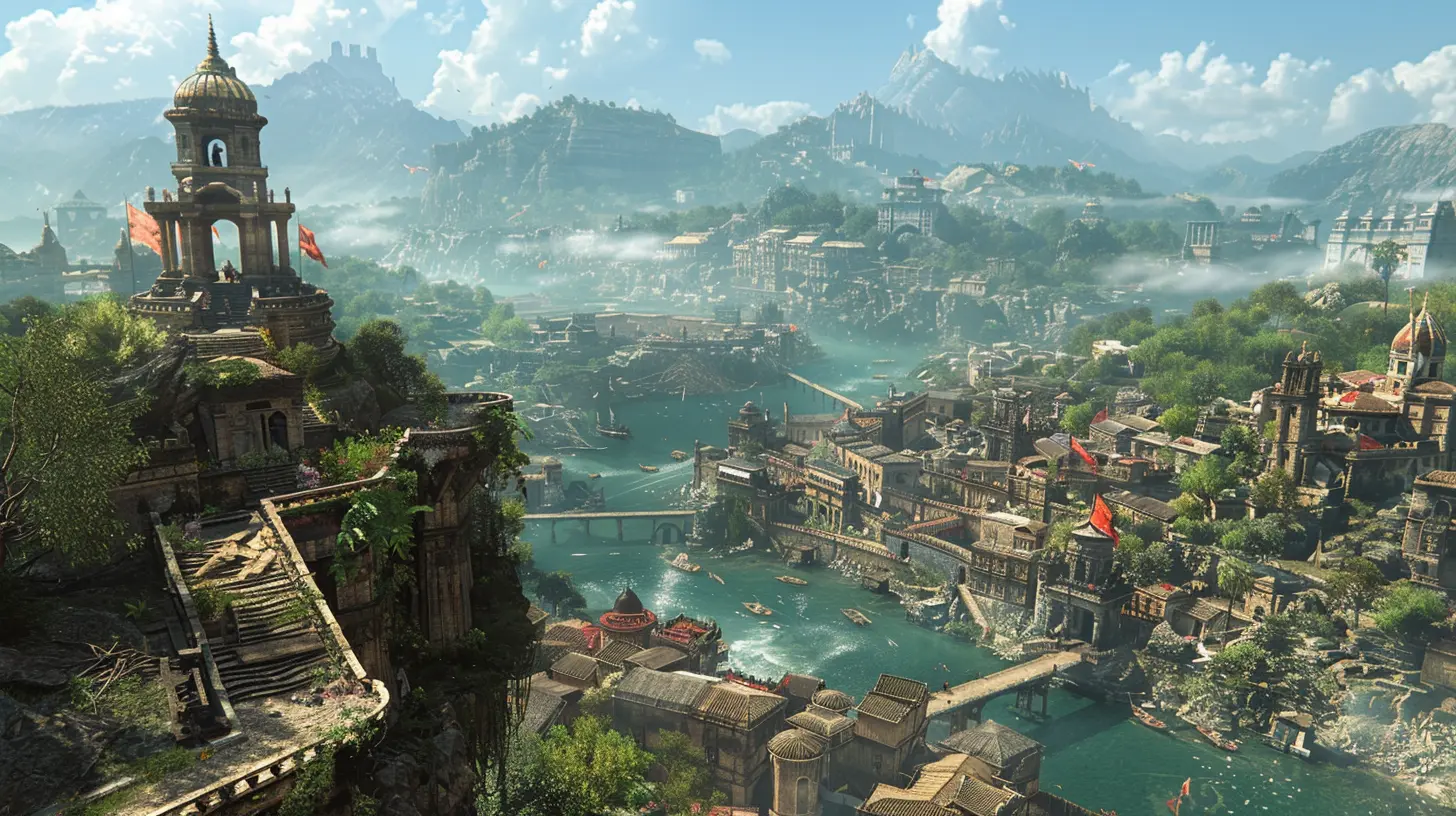
Choice: Crafting Your Own Narrative
Who needs a script when you can write your own?Open-world games give us choice—not just about where to go, but what kind of person (or elf, or wizard, or space pirate) we want to be. Want to play the noble hero saving the land? Go ahead. Prefer to be a chaotic rogue who steals everything not nailed down? You do you.
Every decision you make can ripple through the game, leading to different outcomes, reactions, and story arcs. That sense of agency is intoxicating. It's more than just playing a game—it's living a personal adventure.
This is a big part of why people return to the same open-world game year after year. No two playthroughs are exactly alike. There’s always some side quest left unfinished, some alternate ending to unlock.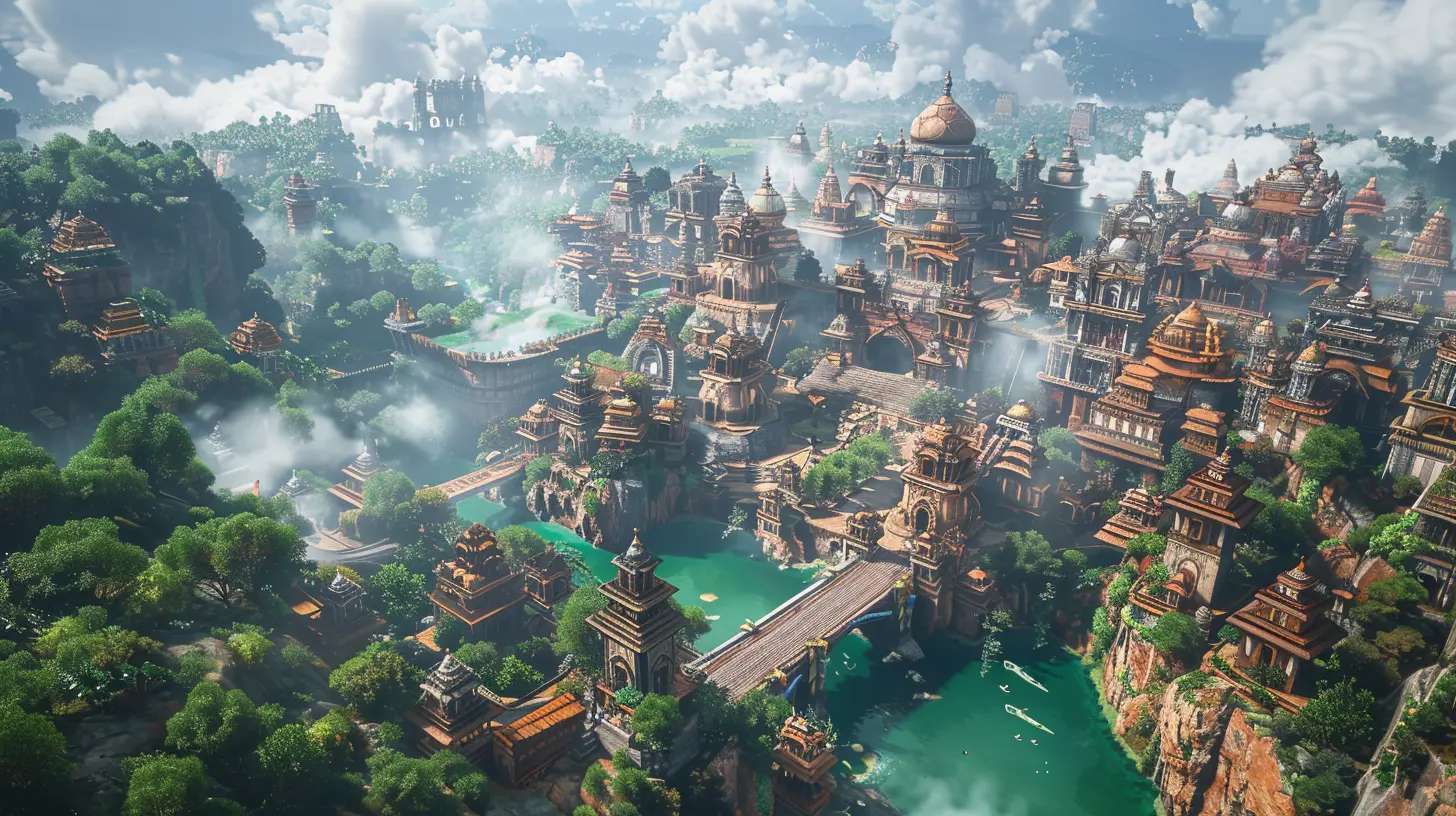
Exploration Feeds Our Curiosity
Ever found yourself wandering off the path just to see what’s beyond that hill?Yeah, you’re not alone.
Open-world games thrive on curiosity. In fact, they reward it. Hidden caves, secret loot, bizarre side characters, easter eggs—the thrill of discovery is addicting. It taps into a core part of who we are as humans: we're explorers by nature.
And these games let us explore without limits (or airport security). Whether it's unearthing forgotten civilizations in Assassin’s Creed or stumbling upon a lonely hut in the middle of nowhere in Elden Ring, these moments remind us how much joy can come from the unexpected.
Escaping Reality (No Passport Needed)
Let’s face it—the real world is pretty heavy sometimes. Bills, work, drama, responsibilities… bleh.Open worlds offer a glorious escape from reality. A temporary vacation for your brain where you can be a dragon slayer, a cyberpunk hacker, or a post-apocalyptic survivor. And the best part? You don’t need to pack a suitcase or worry about traffic.
These digital landscapes become our playgrounds and our sanctuaries. They let us forget our stress and immerse ourselves in someone else’s universe. For many, it’s not just entertainment—it’s therapy with a controller.
That Sweet, Sweet Sense of Progression
Ever notice how satisfying it is to complete a quest line, level up, or finally unlock that legendary weapon?Open-world games are masters at rewarding progression. Even when you’re technically “doing nothing”—like hunting deer or picking herbs—you’re still advancing in some way. Maybe your crafting skill increases, or you find materials to upgrade your armor.
There’s always something to work toward. Something to achieve. And each little win keeps you coming back for more.
It's the digital version of ticking things off a to-do list—except way more fun and with fewer sticky notes.
Community and Shared Experiences
Here’s the thing: even though open-world games are mostly single-player, they spark massive conversations.Just think about the number of memes, fan theories, Twitch streams, and Reddit threads that pop up around these titles. Players love sharing their experiences—whether it's a funny glitch, a heart-wrenching choice, or a jaw-dropping location they stumbled across.
We bond over these games. They become part of our shared digital culture. And there’s something special about being part of the hype when a new open-world title drops and everyone’s diving in together.
Pushing Boundaries of Tech and Storytelling
Open-world games are often at the forefront of what games can do. They’re the testing ground for insane graphics, deep AI systems, complex dialogue trees, and massive world-building.Think about Cyberpunk 2077 (glitches aside, it aimed sky-high). Or Horizon Forbidden West with its breathtaking visuals and robotic dinosaurs. These games don’t just tell stories—they build entire ecosystems around them.
They’re proof that gaming isn’t just a time-waster—it’s an art form.
The Joy of Doing Absolutely... Nothing
You know what’s wild? You can spend hours in an open-world game doing absolutely nothing related to the main story—and still have the time of your life.Fishing. Cooking. Playing mini-games. Decorating your house. Taking in the scenery.
Some of the most memorable moments don’t come from climactic boss fights—they come from quiet, personal experiences. Like watching a virtual sunset after a long journey. Or discovering a beautiful hidden waterfall.
It's not just about the game—it’s about how the game makes you feel.
Your Story, Your Pace
No two players take the same path.Open-world games are perfect for all types of gamers. Want to charge headfirst into battle? There's a quest for that. Prefer solving puzzles? They’ve got ancient ruins and riddles galore. Like playing dress-up with your character's outfits? Oh boy, you’re in luck.
They let you play at your own pace. There’s no rush, no pressure. Just a huge world waiting for you, whenever you're ready.
Nostalgia and Long-Term Love
Lastly, open-world games stick with us.They leave a mark. Years down the line, we’ll still fondly remember our adventures—like the time we accidently punched an NPC and ended up wanted by the entire town. Or that epic dragon fight that took us three tries to win. Or our first glimpse of a sunrise over a vast digital ocean.
They become part of our gaming identity. And that's not something a linear, 5-hour campaign can always pull off.
Final Thoughts: Open Worlds Are More Than Just Games
Open-world games are more than save files and side quests. They’re epic journeys, digital getaways, and personal stories rolled into one massive experience. It's no wonder we can't get enough of them.They don’t just capture our imagination—they let our imagination run wild.
And in a world that often feels too small or too structured, open-world games remind us that adventure is always just one click away.
So next time you're wandering through the wilds of an open-world game, just remember: you're not wasting time. You're creating memories.
And that’s a pretty amazing thing.
all images in this post were generated using AI tools
Category:
Game CultureAuthor:

Lana Johnson
Discussion
rate this article
1 comments
Willow Wood
Great article! Open worlds really do spark our imagination, don’t they? The freedom to explore, discover hidden gems, and create our own adventures makes every gaming experience unique. It’s like stepping into a living, breathing universe where anything can happen. Love it!
October 16, 2025 at 4:35 AM

Lana Johnson
Thank you! I’m glad you enjoyed it. Open worlds truly do offer limitless possibilities and a unique sense of adventure. Happy exploring!
